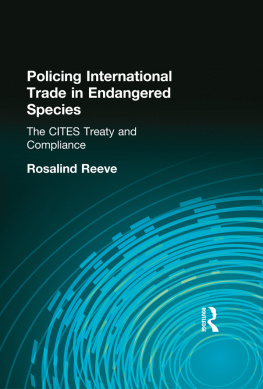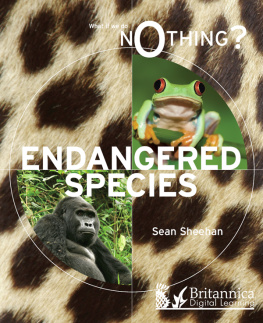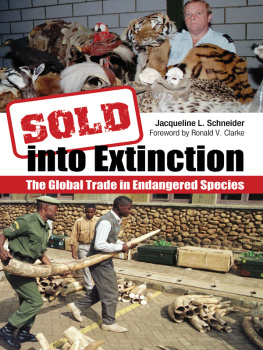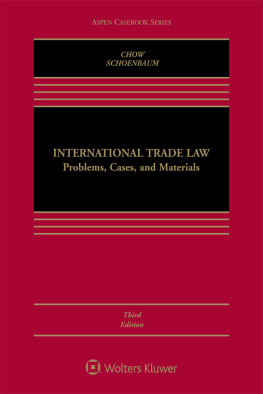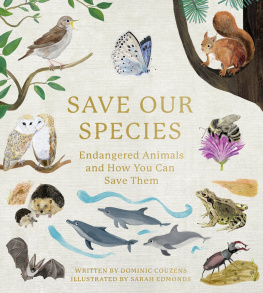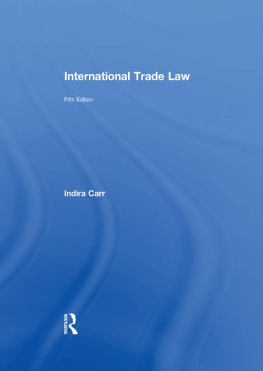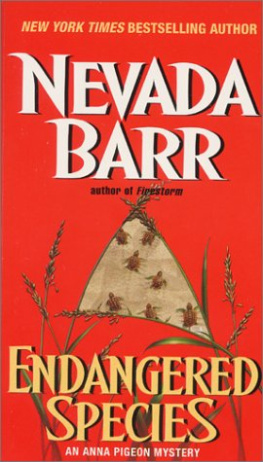Policing International Trade
in Endangered Species
The Sustainable Development Programme is the new name (from February 2002) for the Energy and Environment Programme of the Royal Institute of International Affairs at Chatham House. The Programme works with business, government, and academic and NGO experts to carry out and publish research and stimulate debate across a wide variety of energy, environment and business topics with international implications, particularly those just emerging into the consciousness of policy-makers. Research by the Programme is supported by generous financial and intellectual contributions from its core supporters:
Amerada Hess Ltd
Anglo American plc
BG Group
BP Amoco plc
British Nuclear Fuels plc
Department for Environment, Food and Rural Affairs (UK)
Department of Trade & Industry (UK)
ExxonMobil
Foreign & Commonwealth Office (UK)
Osaka Gas Co. Ltd
Powergen plc
Saudi Petroleum Overseas Ltd
Shell UK
Tokyo Electric Power Co. Inc.
TXU Europe Group plc
Policing International Trade in Endangered Species
The CITES Treaty and Compliance
Rosalind Reeve
First published in the UK in 2002 by
The Royal Institute of International Affairs, 10 St Jamess Square, London SW1Y 4LE (Charity Registration No. 208223) and Earthscan
Distributed in North America by
The Brookings Institution, 1775 Massachusetts Avenue NW, Washington, DC 20036-2188
For a full list of Earthscan publications please contact:
Earthscan
2 Park Square, Milton Park, Abingdon, Oxon OX14 4RN
711 Third Avenue, New York, NY, 10017, USA
Earthscan is an imprint of the Taylor & Francis Group, an informa business
Copyright United Nations Environment and Development UK Committee (UNED-UK), 2000.
Published by Taylor & Francis.
All rights reserved. No part of this book may be reprinted or reproduced or utilised in any form or by any electronic, mechanical, or other means, now known or hereafter invented, including photocopying and recording, or in any information storage or retrieval system, without permission in writing from the publishers.
The Royal Institute of International Affairs is an independent body that promotes the rigorous study of international questions and does not express opinions of its own. The opinions expressed in this publication are the responsibility of the author.
Notices:
Practitioners and researchers must always rely on their own experience and knowledge in evaluating and using any information, methods, compounds, or experiments described herein. In using such information or methods they should be mindful of their own safety and the safety of others, including parties for whom they have a professional responsibility.
Product or corporate names may be trademarks or registered trademarks, and are used only for identification and explanation without intent to infringe.
A catalogue record for this book is available from the British Library
ISBN-13: 978-1-853-83875-0 (hbk)
ISBN-13: 978-1-853-83880-4 (pbk)
The regulation of international trade in wildlife and wildlife products has never been emotionally neutral. Facing an unprecedented tragedy of the commons, ethical value positions in this field confront theories of sustainable development; biologists clash with economists, lawyers with policy scientists; and the NorthSouth divide looms large in the whole debate. Against this background, Dr Rosalind Reeves book offers intellectual relief, both sobering and refreshing: sobering because its subject is the predominantly technical issues of compliance and enforcement, where ideological disputes may seem less ominous; refreshing because the author does not hesitate to ask controversial questions such as the rationale of a Compliance Committee regardless of their current political correctness.
CITES (the 1973 Washington Convention on International Trade in Endangered Species of Wild Fauna and Flora) has indeed played a pilot role among international environmental regimes as one of the most innovative multilateral treaties in the post-Stockholm era of environmental law, and as the starting point of a new dynamic process of global decision-making for the conservation of natural resources. Significantly, though, much of what is really new about CITES is hardly even mentioned in the text of the treaty, but instead was developed almost entirely by subsequent organizational practice including most of the regimes present institutional framework; the procedure of majority voting; the technique of periodic implementation reviews; the active participation of non-governmental organizations in compliance monitoring; and the effective use of trade sanctions against non-complying governments. Not least among the merits of Dr Reeves analysis, therefore, is the fact that rather than expounding law on the books, its focus is the accumulated lessons of 30 years of regime praxis rules in use, as it were. That is why I am confident that this study will make a lasting contribution to our understanding of what works and what doesnt work in global environmental governance.
Peter H. Sand
Institute of International Law
University of Munich

Dr Rosalind Reeve is an Associate Fellow of RIIAs Sustainable Development Programme. She has worked on wildlife trade issues for 16 years, gaining a masters degree in environmental law in 1999. During that time she has travelled extensively investigating wildlife trade for different NGOs, most recently for the International Fund for Animal Welfare (IFAW) in connection with the reptile trade; has participated in CITES meetings on behalf of the David Shepherd Wildlife Foundation and as a Party representative; was Campaign Director for the Environmental Investigation Agency (EIA); was a member of the UK delegation to the International Whaling Commission; was a consultant to UNEP for the Lusaka Agreement negotiations; and worked as a campaigner for Greenpeace International. She is a member of IUCNs Environmental Law Commission and the international consultant network of the Verification, Training and Information Centre (VERTIC), and has written or contributed to numerous reports and articles on wildlife trade.

Since the idea for this book was conceived four years ago many have travelled with me on its journey of realization, some just briefly, others for the whole way. In particular I would like to thank Duncan Brack, Peter Sand and Melanie Shepherd for their belief in the book and for their constant support and encouragement; the David Shepherd Wildlife Foundation for enabling my attendance at CITES meetings; Jake Werksman for his inspiration as an outstanding teacher; James Cameron whose achievements and encouragement convinced me to study law; Rob Hepworth for his valued advice, comments and insight; and staff of the CITES Secretariat especially Jim Armstrong, Jonathan Barzdo, Malan Lindeque, John Sellar, Juan Carlos Vasquez, Marci Yeater and Willem Wijnstekers for their patience and helpfulness in the face of endless requests. I am grateful to Duncan Brack, Robert Lamb, Jason Lowther, Ron Orenstein, Peter Pueschel, Martin Roberts and Peter Sand for reviewing and commenting on the text; to the many others who have taken time to respond to requests for information and advice, especially John Caldwell, Esmond Martin and Kal Raustiala; and to staff of the UK Global Wildlife Division (DEFRA) for their assistance in the early days of the books evolution. For ensuring its professional publication on a tight schedule I am indebted to Margaret May at the Royal Institute of International Affairs, and Sue Hughes, the copy-editor. Last but never least I would like to thank my family, Gordon and Rosemary Bull, Steve Jackson, Gerd Leipold, and Brendan, Bruno, Leona, Maya, Nikhil, Sean and Tara, for their support and understanding.

